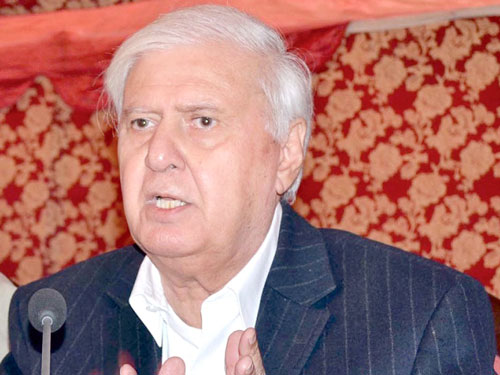Qaumi Watan Party (QWP) Chairman Aftab Ahmad Khan Sherpao on Saturday condemned the attacks on the army installations during the protests of the Pakistan Tehreek-e-Insaf on May 9 and demanded exemplary punishment for those involved in vandalism. He said this while speaking at a meeting of party leaders from Mardan and Swabi districts.
The meeting, which took place at Watan Kor in Peshawar, discussed organisational matters and took stock of the overall political situation in the country. Aftab Sherpao said the attacks on the army installations were carried out under a well-planned and organised conspiracy to undermine the image of the Pak Army.
Condemning the May 9 mayhem in the strongest possible terms, the QWP leader said the ones, who were behind this episode, should be brought to justice and punished in accordance with the law of the land. The QWP leader said that enough evidence was available so the perpetrators of violence should be identified and brought to justice at the earliest in order to avoid the occurrence of such incidents in the future.
He said that former prime minister Imran Khan did not care about the national interests and was hell-bent upon returning to power by hook or by crook. Aftab Sherpao also questioned the role of the superior judiciary in the prevailing political impasse and said that a particular person was being given preferential treatment, which was sheer injustice.
The judiciary, he maintained, had lost its credibility. He said the judiciary was supposed to administer justice, not to take sides or become a party in a political dispute. He said the state institutions should work within the ambit of constitution and must not overstep their authority. He also condemned the suicide attack on the convoy of Jamaat-e-Islami chief Sirajul Haq in Balochistan. He reiterated that former prime minister Imran Khan did not care about the national interests and was hell-bent upon returning to power by hook or by crook.
Aftab Sherpao also questioned the role of the superior judiciary in the prevailing political impasse and said that a particular person was being given preferential treatment, which was sheer injustice. The judiciary, he maintained, had lost its credibility. He said the judiciary was supposed to administer justice, not to take sides or become a party in a political dispute.







